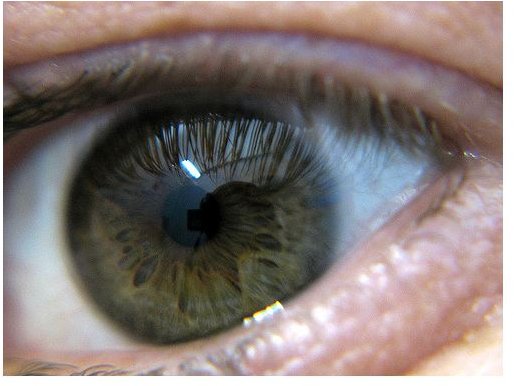How Do I Get Rid of Eye Floaters: Eye Floater Treatment Options
Eye floaters appear to move in front of the eyes, but they are actually tiny clumps of gel or cells inside the vitreous humor, the clear jelly-like fluid found inside the eye. When you look into a bright field of light, these clumps cast their shadows on the retina, causing the appearance of small particles floating in front of the eyes. These objects lag behind eye movements and stop their movement a few seconds after the eyes stop moving.
Image Credit: flickr.com/Fernando de Sousa
Causes
The vitreous humor inside the eyes thickens and shrinks when you reach middle age. When this shrinkage causes the get to pull away from the back wall of the eye, it causes retinal tears which creates the debris that make up the clumps or gel that leads to eye floaters.
Such retinal tears and formation of debris usually occur gradually. Sometimes a section of the vitreous humor pulls away suddenly from the retina. The force of such sudden pull might cause retinal detachment, which could lead to permanent loss of eyesight. The symptoms of such sudden withdrawal are too many eye floaters appearing suddenly, and flashes of light or light spots in the eye.
What to Do
How do I get rid of eye floaters? You may not need to, but you should still visit a doctor immediately when they do occur.
Most people encounter floaters at some point in their lives, and the condition does not normally cause any health hazards. The clumps of gel that result from the retinal tear gradually settle down over time owing to gravity, causing the eye floaters to disappear.
The risk of some eye floaters being early symptoms of retinal detachment, however, makes it important that you visit an ophthalmologist immediately upon encountering eye floaters. The ophthalmologist may dilate the pupil and perform an eye examination to ascertain whether the floaters are a symptom of normal retinal tear or serious retinal detachment. Keep a record of the number of eye floaters encountered, and the medications, vitamins, or supplements consumed to allow the ophthalmologist to make a better diagnosis.
Treatment Options
Normal eye floaters do not pose any significant heath hazard and do not require treatment. If the condition becomes serious, however, there are two proven treatment for eye floaters, including:
- Laser therapy entails destruction of the clumps or gel responsible for the floaters.
- Vitrectomy surgery involves inserting a hollow needle to replace the vitreous humor with saltwater solution to repair the retinal tear and remove eye floaters.
The risk of such surgery causing permanent retinal detachment is great and outweighs the benefits of both laser treatment amd surgery. As such, doctors prescribe these treatments only when the eye floaters are numerous enough that they interfere with vision, or when there is a risk of retinal detachment.
Once retinal detachment once occurs, it will remain a permanent condition unless one undergoes emergency surgery.
At times, eye floaters may cause migraine headaches, and doctors may prescribe medications, such as analgesics or others, to alleviate such migraine.
An alternative natural approach to eye floaters includes strengthening the eyes through diet, exercise and herbal eye drops. A diet that contains balanced amounts of omega-3 fatty acids from sources such as hemp oil, antioxidants from vitamins A, C, and E from sources such as spinach, orange, lemon, milk, dairy products, carrots, fresh fruits, spinach and green leafy vegetables is said to strengthen the eyes and prevent retinal damage. The effectiveness of such alternative treatment eye floaters, and also some homeopathic eye treatment for floaters, remains unproven.
References
- University of Illinois Chicago. “Floaters.” https://www.uic.edu/com/eye/LearningAboutVision/EyeFacts/Floaters.shtml. Retrieved 11 January 2011
- University of Michigan Kellogs Eye Center. “Floaters and Flashes.” https://www.kellogg.umich.edu/patientcare/conditions/floaters.html. Retrieved 11 January 2011
- Net Wellness. “Eye and Vision Care.” https://www.netwellness.uc.edu/healthtopics/eye/floaters.cfm. Retrieved 11 January 2011.
- MayoClinic. “Eye Floaters: Treatment and Drugs” https://www.mayoclinic.com/health/eye-floaters/DS01036/DSECTION=treatments-and-drugs. Retrieved 11 January 2011
